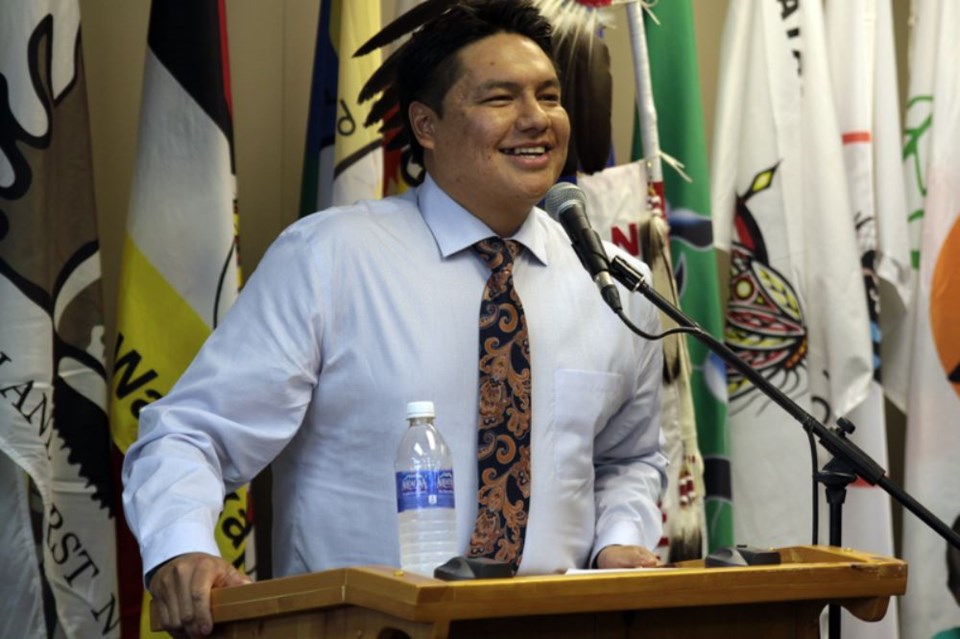Nishnawbe Aski Nation Media Release
THUNDER BAY, ON: Nishnawbe Aski Nation (NAN) Deputy Grand Chief Derek Fox says a new report that shows First Nations families in NAN’s eastern territory are forced to spend more than half their income on food just to meet basic nutritional requirements is a call for action that must be answered by the Government of Canada.
“This report confirms concerns we have raised for years that the benefits of the Nutrition North Canada food program subsidy are not being felt in communities across NAN territory. The fact that many of our people lack access to, or simply cannot afford, healthy and nutritious food to feed their families is outrageous and must be addressed by the federal government,” said Deputy Grand Chief Derek Fox.
“The Nutrition North program needs to be more transparent and reflective of the circumstances our people are facing, with our First Nations engaged as full partners in determining how to direct the subsidy to our remote northern communities.”
Released today by Food Secure Canada, Paying for Nutrition: A Report on Food Costing in the North, documents ‘alarmingly high food prices’ despite the fact that First Nations including Fort Albany and Attawapiskat are serviced by the federal government’s Nutrition North Canada food subsidy program. Key findings include:
* The average monthly cost of food for a family of four for a month in Attawapiskat in June 2015 was $1,909, compared to $875 in Thunder Bay and $847 in Toronto;
* On-reserve households in NAN territory need to spend over 50% of their median income on food in order to purchase a basic nutritious diet, whereas those in Toronto need to spend just 11%; and
* The Nutrition North Canada subsidy program, while important, does not lower the cost of food in northern communities to affordable levels.
The report recommends that the federal and provincial governments make access to nutritious and culturally appropriate food a basic human right, with tailored poverty
reduction strategies and a renewed relationship with First Nations that acknowledges and respects Indigenous sovereignty.
A 2014 report by the Auditor General of Canada found that the food subsidy program is not working and should be replaced with a new approach.
NAN has provided recommendations to the federal government on ways to improve the program by including all remote and fly-in northern communities in the full subsidy, creating equitable eligibility criteria based on real circumstances, reinstating subsidy for hunting and fishing supplies and the development of a Northern Food Strategy to find solutions to high rates of food insecurity.
NAN actively supports First Nations’ right to reclaim food self-determination with access to food that is nutritious, affordable and from the land.
A food security program was launched in Wapakeka First Nation last year to engage children and youth in land-based activities while increasing the community’s capacity for food security. The innovative program will help teach youth and other community members about hunting, trapping, preparing pelts and setting fish nets and promoting safety while harvesting food on the land.
NAN launched the Kiitigaan Aski website (www.kiitigaanaskihub.ca) as interactive online resource to promote nutrition and food self-determination in NAN First Nations. Derived from the OjiCree language meaning “a land where foods/things grow from”, the website allows communities to share information and exchange ideas on how to harvest their own supplies of food and is a valuable resource for re-gaining food self-determination.
NAN continues to address the growing disparity between our First Nation communities and the rest of Canada in terms of access to affordable, nutritious food, and the direct impact on positive health outcomes.
NAN has developed a Food Strategy based on seven key pillars:
1. Community and People,
2. Traditional Practices,
3. Imported Foods,
4. Local Production,
5. Nutrition Practice,
6. Planning, Policy and Advocacy,
7. Research and Knowledge Transfer.
The Food Secure Canada report is available at: www.foodsecurecanada.org/paying-fornutrition
